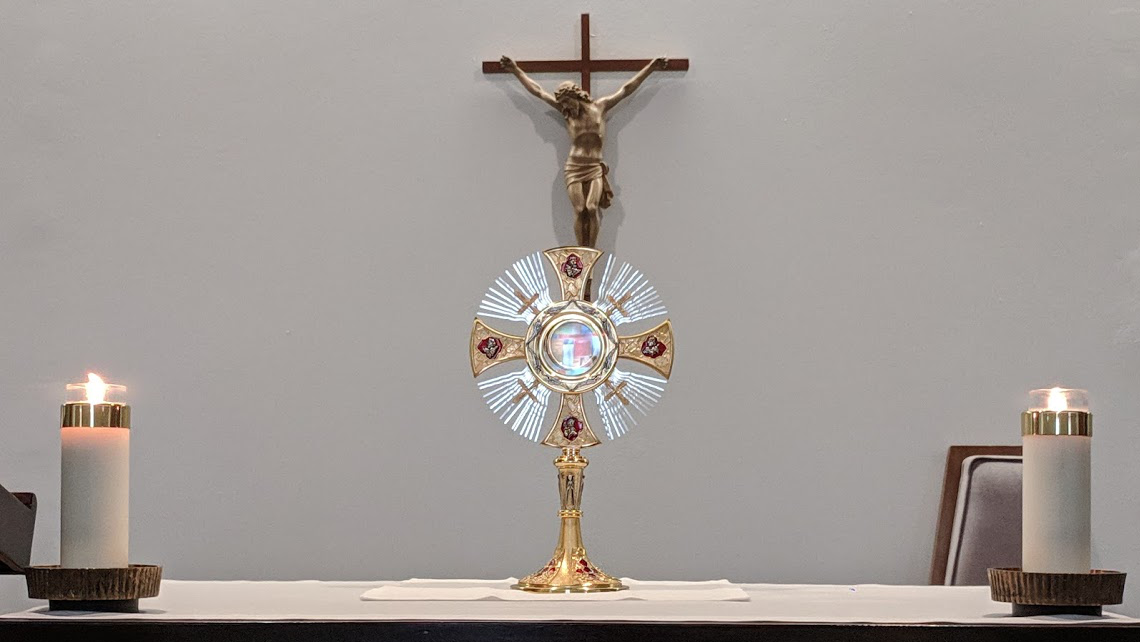
I have read that in 19th Century China there was a name given for people who came to church for one reason and one reason only — because they were hungry for material food. They converted to Christianity, were baptized, joined the Church, and were active members as long as their physical needs were met through the generosity of the congregation. But once their socio-economic situations improved and they and their families no longer needed rice, they drifted away from the Church. And so, they were called “rice Christians.”
The crowd in our Gospel Lesson for this morning are, evidently, the same group who had been fed the day before when Jesus miraculously fed 5,000 people from five loaves of bread and two fish. Apparently, they had eaten their fill and then took a good old snooze. The next morning, when they woke up, they realized that Jesus and His disciples had quietly left town.
It seems that the crowd was hungry for breakfast. They were chasing after Jesus, not because they were interested in having a relationship with Jesus; they merely wanted another free meal. They were after Jesus because they want to fill their tummies, not so they can have the fulfillment of their lives. And so, we see that what happened in 19th Century China. It’s as old as the Gospel itself.
Did you know that 16% of the verses of the gospel of John have questions in them — the most out of any gospel? And in fact, Jesus’ first words after His Resurrection (and first words are important) are in the form of a question — “What are you looking for?”
Four! That is the number of questions that the crowd asks Jesus in today’s gospel.
But, here are three questions for us to ponder this week:
- What if we have moments when we don’t believe in Jesus, or more rightly, what if we struggle to believe?
- What has the pandemic’s effect on regular Mass attendance had on our faith?
- What if our kids or our spouse or our grandkids or our friends struggle to believe in Jesus? What does that mean for them? Can we examine those questions?
Who is Jesus to us? Does he come in order to feed our body, or rather to satisfy the needs of our soul, needs which we do not know very well? Do we work solely for food that perishes; or rather do we also work sufficiently for that which endures to eternal life?
In this Gospel reading, Jesus says that He is the true bread of life. He is the true bread which can satisfy our hunger, He is the true drink that can quench our thirst. Well, I think a good warning is for us to think about whether there are things in our lives to which we say, “I would be able to be happy if only _______” or “things would be so much better if ______”.
When we ask ourselves these kinds of questions, the true answer we should be looking for should be centered on God. But if we are thinking, “I would be far happier if only such and such a person would stop driving me crazy”, or, “If only I could manage to lose weight, I could finally be happy with myself”, or, “Things would be better off if only I could make enough money”. While achieving such things may be helpful or even good for us, very often when we’re saying “if only”, then what we’re looking for is God’s intercession, but what we’re settling for is actually just a substitute. Jesus is the true bread from heaven. Nothing else will satisfy.
Jesus says to the crowd of people chasing Him across the sea so many years ago and Jesus says to each one of us: “Do not work for food that perishes, but for food that endures for eternal life which the Son of Man will give you.”
And yet, I see so many unhappy people.
I see people who are angry and stressed out. I see kids who are confused and can’t figure out why they are so unhappy. So, in order to try and fix themselves, they do all sorts of things that make them even unhappier.
The Eucharist is the source and summit of our Catholic faith. A word rooted in thanksgiving. What a priceless gift, a comfort, our strength. Do we hold out our hand, not holding back or latched to our desires, but freely surrendering into the mystery of the transformative essence?
The Eucharist is not just a religious ritual we do at church each Sunday, but that we take within is to strengthen us for lives committed to service in the world. If we truly believe what we have received, life is not mundane. Life has purpose with a passion for those forgotten by society, invisible or oppressed. Saying Amen should not be pronounced as a robotic utterance, but an affirmation of our thanksgiving for the gift and our resolve to be disciples, for we truly believe in what we receive in the sacrament of love, a sign of unity.
Belief isn’t something you have to muster up in your brain and convince yourself of before walking into church. In the gospel of John belief is not something you do, but rather belief is a gift given and it is the gift of a relationship with God.
As we look at our community and our world today we see that people are either desperate for food… hungry each night and hoping for relief, or they have all the food that they can eat with leftovers, and yet their lives are unfulfilled.
Again, Jesus says, “Do not work for the food that spoils, but for food that endures for eternal life.”
– Dcn. Terry Murphy

